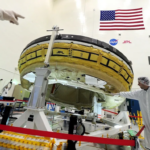The mainland Antarctica is not known so long ago, but now every schoolboy knows what Antarctica means “opposite to the Arctic (northern)”. Arctic lands have been known for a very long time, because people lived very close to the north of Europe, but if they did not know about the existence of land in the distant south, then they thought. Aristotle also managed to calculate the approximate location of this land, which should balance the presence of land and water in the world. For the first time, the word “Antarctica” used Ptolemy in the II century n. e., And in the Middle Ages, they seriously took up the search for the unknown southern land (Terra Australis Incognita), which the ancients talked about. Initially, Australia opened in the 17th century, but after almost a century, the northern islands adjacent to Antarctica were opened. They were imposed on the map, and south they began to denote the very unknown land that, with its outlines, somewhat reminiscent of the mainland we knew. In the XIX century, the open smoother mainland was named, the name that Antarctica means translated from Greek – “opposite to the northern land”, and the southern ocean and islands that are in it are the antarctic, “the opposite of the North”.
Search





